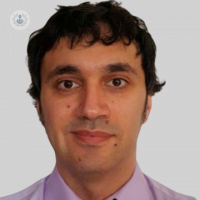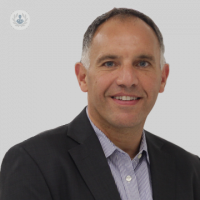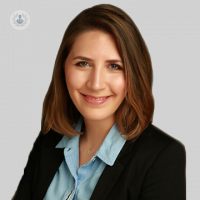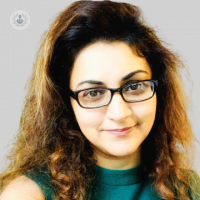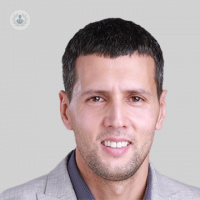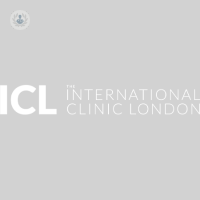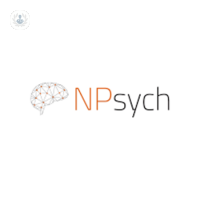What are behavioural problems in children?
Most young children will show behavioural issues to an extent during their development, which are to be expected especially in association with changes in their surroundings, such as starting a new school or preschool or the birth of a sibling. However, some children may display behavioural problems that do not improve, despite their parent or guardian's best efforts.

What are examples of early behaviour and childhood disorders?
It is rare for a child under the age of five to receive a behavioural disorder diagnosis. They may, however, display early warning signs of the following:
- Attention deficit hyperactivity disorder (ADHD)
- Oppositional deficit disorder (ODD) - which is characterised by hostile, irritable and uncooperative attitudes in children, perhaps by being spiteful on purpose.
- Autism spectrum disorder (ASD)
- Anxiety disorder
- Depression
- Bipolar disorder
- Learning difficulties
- Conduct disorders
It is more common that these clinical disorders will pass and is only a temporary behavioural problem. In some cases, professional help is needed, such as a guidance counsellor who can help teach your child how to cope with any stressors.
What causes behavioural disorder?
There is a variety of causes for behavioural disorder, such as disability, malnutrition, brain damage or genetic factors. External influences that are related to the child's family and home life may contribute to behaviours associated with the disorder. These could be factors such as a disruptive home life, an unhealthy or inconsistent discipline style or a poor attitude towards school and education.
What are the symptoms of behavioural disorder?
The emotional symptoms may include:
- Being easily annoyed
- Anger
- Blaming others
- Breaking rules
- Not following authority
- Throwing temper tantrums
- Difficulty in handling frustration
How is behavioural disorder diagnosed?
A medical professional can evaluate your child by performing tests called functional behavioural assessments, which are based on techniques and strategies that are used to identify and address behavioural problems in children.
How is it treated?
If left untreated, behavioural disorder can lead to serious mental health issues so an assessment and treatment plan is crucial for your child's development.
A specialist will devise a treatment plan for your individual circumstance. It may be that talking therapy, known as cognitive behavioural therapy, combined with medications will help.
There are many medications available for behavioural problems and the type of drug that will be prescribed depends on the specific condition being treated. For example, Ritalin is used to treat ADHD whereas those with depression and anxiety may require antidepressants.
Behavioural problems
Dr Khaled Helmy - Psychiatry
Created on: 07-03-2019
Updated on: 04-10-2024
Edited by: Sophie Kennedy
What are behavioural problems in children?
Most young children will show behavioural issues to an extent during their development, which are to be expected especially in association with changes in their surroundings, such as starting a new school or preschool or the birth of a sibling. However, some children may display behavioural problems that do not improve, despite their parent or guardian's best efforts.

What are examples of early behaviour and childhood disorders?
It is rare for a child under the age of five to receive a behavioural disorder diagnosis. They may, however, display early warning signs of the following:
- Attention deficit hyperactivity disorder (ADHD)
- Oppositional deficit disorder (ODD) - which is characterised by hostile, irritable and uncooperative attitudes in children, perhaps by being spiteful on purpose.
- Autism spectrum disorder (ASD)
- Anxiety disorder
- Depression
- Bipolar disorder
- Learning difficulties
- Conduct disorders
It is more common that these clinical disorders will pass and is only a temporary behavioural problem. In some cases, professional help is needed, such as a guidance counsellor who can help teach your child how to cope with any stressors.
What causes behavioural disorder?
There is a variety of causes for behavioural disorder, such as disability, malnutrition, brain damage or genetic factors. External influences that are related to the child's family and home life may contribute to behaviours associated with the disorder. These could be factors such as a disruptive home life, an unhealthy or inconsistent discipline style or a poor attitude towards school and education.
What are the symptoms of behavioural disorder?
The emotional symptoms may include:
- Being easily annoyed
- Anger
- Blaming others
- Breaking rules
- Not following authority
- Throwing temper tantrums
- Difficulty in handling frustration
How is behavioural disorder diagnosed?
A medical professional can evaluate your child by performing tests called functional behavioural assessments, which are based on techniques and strategies that are used to identify and address behavioural problems in children.
How is it treated?
If left untreated, behavioural disorder can lead to serious mental health issues so an assessment and treatment plan is crucial for your child's development.
A specialist will devise a treatment plan for your individual circumstance. It may be that talking therapy, known as cognitive behavioural therapy, combined with medications will help.
There are many medications available for behavioural problems and the type of drug that will be prescribed depends on the specific condition being treated. For example, Ritalin is used to treat ADHD whereas those with depression and anxiety may require antidepressants.
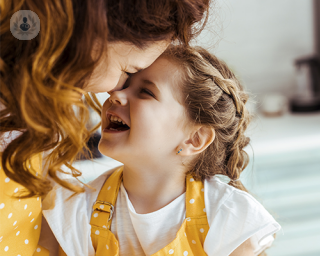

Childhood behavioural disorders and how to positively treat them
By Dr Rahul Bharat
2024-12-26
There is a large range of reasons for unruly behaviour, and it can be difficult to know whether a child or teenager’s difficult behaviour is “normal” or a sign of an underlying issue. Dr Rahul Bharat, a consultant paediatric neurologist, clarifies what to look out for and how to deal with behavioural problems in a positive manner. See more


Navigating AI in child and adolescent mental health
By Dr Jon Goldin
2024-12-25
AI has undoubtedly started to have an impact on all aspects of healthcare, including mental health for children and adolescents. Forbes.com recently wrote about how AI in mental health is emerging as a reassuring resource for diagnosis, developing therapies and enabling a more personalised approach and treatments for patients. However, there are various aspects to consider such as ensuring collaboration between AI and human-led care leads to the best results for patients. Leading consultant child and adolescent psychiatrist Dr Jon Goldin takes a comprehensive look at AI in child and adolescent mental health in this article, written with the help of AI. See more
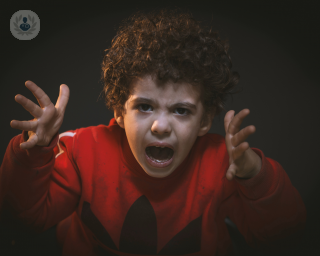

How can a conduct disorder in children be treated?
By Professor Debora Elijah
2024-12-21
Children with a conduct disorder often find it difficult to follow rules and display socially destructive and aggressive behaviour. This often hurts other people around them and themselves too. So, why do they act like this? Dr Debora Elijah, an expert cognitive neuropsychologist who practises at the Elijah Social Cognitive Skills Centre in North London, gives us a quick overview of this disorder and explains how she can help your child. See more
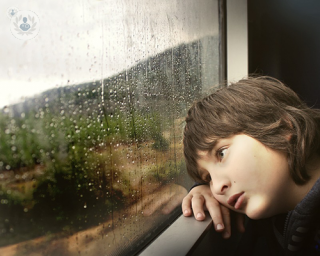

Can the severity of ADHD be reduced?
By Dr Ramya Mohan
2024-12-17
Here to explain ADHD in expert detail in this article is highly revered consultant child and adolescent psychiatrist Dr Ramya Mohan. See more
Experts in Behavioural problems
-
Dr Daniel Ghossain
PsychologyExpert in:
- Expert witness
- Neuropsychology
- Behavioural problems
- Acquired brain injury
- Medicolegal
- Paediatric neuropsychology
-
Dr Jon Goldin
PsychiatryExpert in:
- Childhood depression
- Paediatric psychiatry
- Anxiety
- ADHD
- Emotional control
- Behavioural problems
-
Dr Lara Lavadino
PsychiatryExpert in:
- Paediatric psychiatry
- ADHD
- Conduct disorder
- Behavioural problems
- Sleep disorders
- Mental disorders
-
Dr Saadia Arshad
PsychiatryExpert in:
- Learning disabilities
- ADHD
- Autism
- Behavioural problems
- Epilepsy
- Mood disorders
-
Dr Aaron Lovelle
PsychiatryExpert in:
- Depression
- Emotional control
- Anxiety
- Autism
- Behavioural problems
- Paediatric psychiatry
- See all

The International Clinic London
The International Clinic London
10 Harley Street
No existe teléfono en el centro.
By using the telephone number provided by TOP DOCTORS, you automatically agree to let us use your phone number for statistical and commercial purposes. For further information, read our Privacy Policy
Top Doctors

NPsych
NPsych
7 Ducketts Mead, Roydon, Harlow, CM19 5EG
No existe teléfono en el centro.
By using the telephone number provided by TOP DOCTORS, you automatically agree to let us use your phone number for statistical and commercial purposes. For further information, read our Privacy Policy
Top Doctors

Held Health
Held Health
The Generator, The Quay, EX2 4AN
No existe teléfono en el centro.
By using the telephone number provided by TOP DOCTORS, you automatically agree to let us use your phone number for statistical and commercial purposes. For further information, read our Privacy Policy
Top Doctors
-
The International Clinic London
10 Harley Street, W1G Marylebone LondonExpert in:
- Addictions
- Anxiety
- Panic attacks
- Depression
- Fertility
- Child Psychology
-
NPsych
7 Ducketts Mead, Roydon, Harlow, CM19 5EG, BrentwoodExpert in:
- Anxiety
- Panic attacks
- Depression
- Psychology
- Rehabilitation
- Specialist rehabilitation
-
Held Health
The Generator, The Quay, EX2 4AN, ExeterExpert in:
- Anxiety
- Autism
- Child development
- Child Psychology
- Child Psychiatry
- ADHD
- See all
- Most viewed diseases, medical tests, and treatments
- Immunotherapy
- Alzheimer's disease
- School refusal
- Child nutrition
- Migraine
- Maternal mental health
- Paediatric rheumatology
- Autoimmune diseases
- Joint pain
- Nutrition

